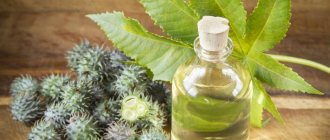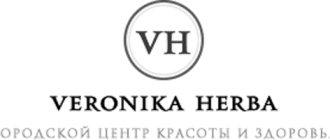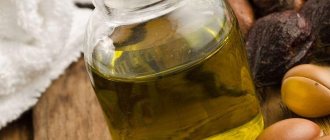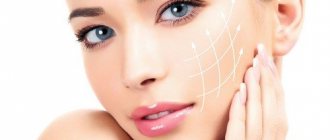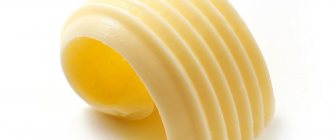Apricot oil, the properties and uses of which were known back in medieval Europe, has a unique chemical composition. The product, obtained from the sweet seeds of juicy orange fruits, is distinguished by the combination of oleic acid with linoleic acid, the presence of tocopherol acetate and phytosterols. This combination determines pronounced antioxidant properties, and another feature of the product is the possibility of using it in its pure form to care for the epidermis. The extract is also described in the State Fund of the Russian Federation, therefore it can be used by pharmacological companies in the manufacture of drugs for intramuscular administration. Detailed information about what other features apricot oil has is presented in the text below.
Apricot fruit tree (Prunus armeniaca)
A Brief History of Apricot Oil
The plant called apricot has been known to mankind for about 5,000 years, and there is currently debate about which country is the birthplace of the culture. The clear answer to the question is that the homeland is located in China and other regions of Asia. The fact is that 2 thousand years ago, with the beginning of the development of the Christian faith, juicy orange fruits first appeared on the site of modern Armenia, where cultivation then began.
For many centuries, a country called Armenia was considered the homeland, but this assumption about the origin of the apricot turned out to be erroneous.
In warm European territories, the culture became known already in the first century AD. In the Middle Ages, valuable apricot kernel oil was available only to the rich due to the complex method of extracting the extract from the seeds.
In the 17th century, residents of Russia learned about apricots. Nowadays you can even buy the product in a supermarket, and thanks to selection there are culturally bred varieties that grow in the conditions of the central zone of our country.
IMPORTANT. Indian magicians used the seeds to prepare powerful poisons.
general information
Scientists still cannot decide which country is considered the birthplace of the apricot tree. Botanists are sure that this juicy and appetizing fruit was brought to us from sunny Armenia. Historians absolutely disagree with this position; they believe that the fruit tree began to be grown in Ancient China. But it was in those parts that they first started producing oil from apricot kernels.
Initially, this natural product was of great value and was not available to ordinary people. It was used to treat cancer and stomach ulcers. The value of oil as a cosmetic product was rightfully appreciated much later. European noble ladies began to use it to care for eyelashes, hair and body skin back in the 16th century. Today this product is produced on an industrial scale and anyone can purchase it at a pharmacy at a very affordable price.
Modern apricot oil, as in ancient times, is a completely natural and environmentally friendly product. Three methods are used to prepare it :
- cold pressed;
- hot pressing;
- extraction.
The last two methods are the most productive for extracting this raw material, but the product obtained in this way loses half of its useful substances, and therefore is not considered first-class. Using the cold method, only 30% of the available oil can be removed from the seeds, but its gentle effect allows you to obtain a high-quality and healthy product, which is also more suitable for use and storage.
Cold-pressed apricot oil contains almost all the valuable vitamins taken from the seeds. It is thanks to its rich and active composition that it was able to win the trust of women who prefer to use natural products for personal care.
Composition of the product
Apricot kernel oil has a liquid, slightly oily consistency with a golden or amber hue. Its aroma is subtle and resembles the smell of nuts and the pulp of a ripe apricot.
This product is very similar in composition to other cosmetic oils, such as almond, grape and peach. It includes the following substances:
- fatty acids: linoleic - polyunsaturated, palmitic and oleic - monosaturated, stearic - saturated;
- vitamins of group A, B, C, E, F;
- minerals - potassium, phosphorus, iron, iodine, magnesium, calcium;
- microelements - tocopherols, stearin;
- phospholipids.
The combination of these beneficial substances helps to well moisturize even very dry skin, increase its elasticity and firmness.
Fatty acids contribute to the active functioning of epidermal cells. Accelerating skin regeneration inhibits premature aging and natural wilting. It is also worth noting that, thanks to its rich composition, apricot oil can regulate the production of sebum, and this prevents the expansion and contamination of pores and the appearance of acne.
What it is
Apricot oil (apricot kernels) is an extract obtained by cold pressing the seeds extracted from the seeds of the apricot plant. On average, the seed part contains a minimum of 35%, a maximum of 60 vegetable fats, but when isolated, the yield is a smaller percentage by weight, which explains the relatively high cost.
Description of apricot oil:
[product_block id=”11007"]
- texture – light oily;
- shade – light yellow;
- aroma – weakly expressed, with a nutty note;
- consistency – viscous;
- the taste is specific.
On sale you can find refined (purified, devoid of taste and aroma) and unrefined. The choice should be made on the second type due to maximum preservation of nutrients.
Features of the composition
The product is used as a base in various health procedures. The product penetrates into the deepest layers of the skin and corrects aesthetic imperfections. Its effectiveness is due to the characteristics of its composition.
- Organic acids. The product contains the following acids: stearic, palmitic, oleic, palmitoleic, linoleic. They are used in cosmetology to restore lost functions of the skin and activate the process of cell regeneration.
- Vitamins. The product contains various vitamins. Vitamin E has beneficial properties, which helps restore firmness and elasticity of the skin and smooth out wrinkles. Vitamin A has an antiseptic and anti-inflammatory effect, soothes tired skin, and gets rid of flaking. B vitamins are known to have healing properties, which not only have an antiseptic effect on the skin. They heal damage and prevent the development of acne and other rashes. Vitamin C, which protects the skin from ultraviolet radiation and sudden temperature changes, is involved in the formation of collagen, and acts as an antioxidant.
- Microelements. The product contains potassium, which moisturizes skin of any type and stabilizes the adsorption properties of the body. Magnesium restores blood circulation, helps enrich the skin with oxygen and other nutrients.
Apricot oil (apricot kernels): properties
Since the product is suitable for use for cosmetic, medicinal and culinary purposes, we will describe the effects of external use and internal use.
The cosmetic effect is expressed:
- refreshment;
- toning;
- rejuvenation;
- lightening;
- purification;
- moisturizing;
- food;
- protection from the negative influence of external factors;
- tone alignment;
- elimination of dandruff, split ends, fragility, regeneration of the structure of hair shafts, increased growth;
- narrowing of skin pores;
- relieving swelling, maintaining tone;
- anti-cellulite and wound-healing effects;
- eliminating scars;
- antiallergic, anti-inflammatory, softening effects;
- accelerated cellular regeneration.
Therapeutic use is explained by the following positive effects on the human body:
- immunostimulating;
- restorative;
- normalizing (heart muscle, nervous system, kidneys, thyroid gland, liver, metabolic processes, metabolism, hormonal levels);
- reducing (concentration of bad cholesterol molecules in the circulatory system);
- calming;
- removal of excess fluid from the body;
- antioxidant;
- strengthening (vascular walls);
- laxative;
- anticancer;
- anti-inflammatory.
The characteristics described explain the wide range of uses, which we will discuss later, after we talk about use by certain categories of people.
Table: additional options for oil and formulations based on it
| Skin problems | Recipe with oil | Result |
| Inflammation, irritation |
The procedure should be performed 2 times a day. | After a week of regular use of this composition, the inflamed areas will begin to heal, redness and swelling will subside. |
| Tired skin, freckles, age spots |
This procedure must be carried out 2-3 times a week until the skin condition improves. | The skin brightens, the face looks fresher and younger, pigment spots and freckles do not disappear, but turn pale. |
| Enlarged pores |
It is recommended to perform the procedure every evening. | After 7–10 days, the pores will noticeably narrow and the complexion will improve. |
Photo gallery: ingredients for making homemade cosmetics
Lemon juice is known as a whitening and drying agent, ideal for improving oily skin.
Tea tree essential oil effectively fights inflammation
Lemon ether slightly whitens the skin, so when preparing formulations based on it, strictly follow the dosage
The protective properties of lavender help protect the skin from the effects of negative external factors (ultraviolet radiation, temperature changes, etc.)
Peppermint oil is widely used for procedures for the care of sensitive and oily skin.
Apricot oil: application
This product is described in the State Fund of the Russian Federation, therefore it is used in the pharmaceutical industry as a dissolving component for the active ingredients of injectable forms of drugs intended for intravenous/intramuscular administration.
Since apricot kernel oil is used for food - salad dressing, component of mayonnaise, desserts - dishes where the product is most often added in small quantities for aroma or variety of taste, next we will consider external use.
Apricot oil (apricot kernels): application in cosmetology
In the composition of industrial products you can find apricot pulp extract, which gives the epidermis a velvety feel, and seed oil - a completely different ingredient with different properties. This component has a wide spectrum of action and is suitable for different parts of the body, so it can be used in its pure form in the following ways:
- masks/scrubs – for the face;
- hair masks;
- body wraps;
- anti-cellulite procedures;
- massage;
- care for hands/feet/nails - in the form of baths, masks, creams;
- skin around the eyes – massage/compresses/masks;
- prevention of stretch marks on the abdomen after pregnancy;
- eliminating the consequences of prolonged exposure to frost/sun;
- massage at night before sunbathing;
- use instead of aftershave balm;
- treatment of hair removal areas;
- improvement of appearance, increased growth of eyelashes and eyebrows;
- lip care;
- removing traces of makeup;
- input into finished formulations – up to 10%.
Due to its conductive properties, adding it to ready-made creams, gels, balms, rinses, and shampoos enhances the main effect.
Apricot kernel oil, especially recommended for age-related changes
Apricot oil for face
The main effects of application on the epidermis are described above. Methods:
- in its pure form - apply to moistened areas for 15 minutes, remove residues with a napkin, procedure frequency - no more than once a week;
- spot treatment of scars, acne, inflammation, rashes;
- treatment of peeling, cracks;
- Additive to day/night cream.
The product has no restrictions on the types of dermis, and, according to reviews, the appearance of comedones does not occur when used in a mono variation.
Apricot oil for hair
It can be used on strands in pure form or as part of masks with nourishing, moisturizing, regenerative or other effects. In its pure form, this product can solve problems with fragility, split ends, excessive hair loss, lack of shine, dandruff, and low regrowth rate.
On oily strands, it is possible to increase the level of sebum produced, so it should be applied only to strands or included in masks and other care products.
The product should be rubbed into the scalp epidermis for two minutes, then distributed over the strands with a comb, insulated (plastic bag, cap), after 30 minutes. take off. You can enhance the effect by adding it to your shampoo/conditioner. Course duration – up to 8 weeks, frequency – up to 2 procedures/week.
Due to the lightening effect, it is better for girls with dark-colored or natural strands of dark shades to use only as part of masks.
Apricot body oil
Moistened areas should be lubricated, massaging until completely absorbed. This procedure will make the epidermis velvety and prevent the appearance of peeling and cracks during the cold season. Anti-cellulite massage is possible with a mixture consisting of this product and essential oils.
Benefits of apricot oil for facial skin
Apricot emulsion is ideal for skin suffering from a lack of vitamins and moisture. The product has the following properties beneficial to the epidermis:
- Nourishes, softens and moisturizes the skin, making it an excellent preventative against dryness and flaking of the epidermis.
- Accelerates the exfoliation of dead cells, due to which the skin renews itself faster.
- Helps stimulate the synthesis of collagen and elastin. These substances are proteins responsible for the tightness and smoothness of the epidermis.
- Rejuvenates the skin and smoothes out fine wrinkles.
- Helps tonify the epidermis.
- Evens out complexion.
- Eliminates inflammatory processes on the skin. This property is most in demand for problematic and sensitive epidermis.
- Normalizes the functioning of the sebaceous glands. In the case of dry skin, oil increases the productivity of the latter. If the epidermis is oily, the product helps eliminate excess sebum from the surface of the epidermis.
Rules for selection and storage
You can buy the product in pharmacies or retail chains, as well as specialized online stores. Before paying, you should familiarize yourself with the data presented on the packaging and, if possible, the appearance:
- information about the manufacturer and importer;
- record of compliance with GOST requirements;
- clear, readable text;
- adequacy of expiration dates;
- availability of information on the degree of purification;
- glass, darkened containers;
- there is no sediment at the bottom.
Before purchasing, you should pay attention to the purpose, which can be food or cosmetic, and the degree of purification (refined, unrefined).
Store in a cool place, protected from direct light, preferably in the refrigerator, strictly observing the expiration date indicated on the package.
IMPORTANT. If the recommended storage conditions are violated, destruction occurs of substances that predominate in the chemical composition - unsaturated fatty acids.
There is no information about the negative effects of apricot oil on the body.
Massage
Apricot oil slightly heated in a water bath is an excellent product for massage. A targeted procedure is beneficial for the face. When conducting such a session, you must follow the following steps:
- Soak the fingertips of both hands in the oil.
- Place them on the middle of your forehead and begin stroking the skin towards your temples. Using your fingertips, lightly press on the epidermis, but without force.
- Repeat 5-8 times: from the middle of the forehead to the temples and again from the starting position.
- Place the index fingers of both hands at the outer corners of the eyes, then lightly and without pressure draw a circle around the eyes several times. From the outer corner to the inner, move along the lower eyelid. From the inner corner to the outer, move your fingers under the eyebrows (above the upper eyelid).
- Go over the entire face, lightly patting with your fingertips and moving from the middle to the temples.
- Below, along the contour of the face, knead the skin by pinching: from the center of the chin to the temples.
- Finish the procedure the same way you started: by stroking along the massage lines. Don't forget to moisten your fingertips with oil (lightly so that your hands don't slip too much).
- Do not remove any remaining product; let it absorb into the skin.
Video: performing the procedure at home (15 minutes a day)
Apricot oil: properties, harm, contraindications
Positive effects on the human body can result in unpleasant consequences if abused:
- inside – eating disorders, excess weight gain, rejection;
- externally – impaired functioning of the lipid layer of the dermis, thinning, early wrinkles.
Contraindicated for use in case of individual intolerance, pregnancy, lactation.
Before use, you should read the instructions for use. It is prohibited to use a product intended for cosmetic purposes.
Apricot for rejuvenation
The advantage of such products is their effectiveness in application to the eye area. It allows you to quickly get rid of wrinkles in this area, completely eliminating minor defects, and having a positive effect on deep sagging dermis.
Using the product on the cheekbones, forehead and other facial areas, you can see how the skin in these places becomes more toned and elastic. This occurs as a result of tissue saturation with essential fatty acids, vitamins and microelements, and improved blood circulation.
Also beneficial is applying this cosmetic product to the chin and neck area. Regular use combats the blurring of the contour in the lower facial part, returning the oval to a clear, toned silhouette.
Benefits and harms, how to take
Indications for oral use are the presence of the following diseases:
- reduced immunity;
- impaired functioning of internal organs (kidneys, cardiovascular system, thyroid gland);
- anemia;
- gastritis;
- constipation;
- allergy;
- stress;
- diabetes;
- swelling;
- convulsions;
- rickets;
- cough.
How to drink:
- together with food;
- daily dose – up to two tablespoons.
IMPORTANT. It is worth choosing a product intended for internal consumption.
Pros and cons of natural oils
Taking into account the fact that cream manufacturers invest a lot of money in their popularization among women, the demand for finished products in beautiful jars is consistently high. The same cannot be said about natural ingredients, including oils.
You may find this article useful: Mask for cleansing pores: benefits, recipe, how to use
They are used for skin care and the fight against wrinkles by ladies who are fans of natural beauty products. People who couldn’t find a caring face cream in the store are also starting to try them.
Advantages of using natural oils to combat wrinkles:
- The ability to use them in many cases. In addition to eliminating wrinkles, they can also fight other skin problems. For example, they eliminate acne and get rid of flaking.
- They have a low cost. Considering that a very small amount of oil is required for use, one bottle lasts for a long time. In addition, the same oil can be used not only for facial skin. It is suitable for hair, nails, body.
- The oil is an absolutely natural product that does not contain synthetic additives. In most cases it is hypoallergenic.
- The active substances contained in the oil are able to penetrate deep into the skin and stimulate work at the cellular level.
Among the disadvantages of using oils are the following:
- Women with oily and problematic skin should carefully choose natural oils and not use them too often. Although many of them have an anti-inflammatory effect and are able to establish the proper functioning of the sebaceous glands, if you choose the wrong one, you may experience acne.
- Using natural oils requires additional time. Which many people don't like. Not all oils can be used as an independent remedy. Often it has to be combined with other ingredients. Some of them can only be used as a component for a mask.
In addition, there are oils with a fairly heavy structure that are not able to be completely absorbed into the skin. Therefore, it needs to be washed off additionally.
Product rating
To make it easier to navigate and quickly choose the best apricot oil, we have compiled a rating of the most popular products.
| Manufacturer | Purpose/volume | Price, rubles | Recommend, % |
| Zeitoun | Cosmetic/100 ml. | 650,0 | 100,0 |
| Spivak | Cosmetic/50.0 | 250,0 | 98,0 |
| Aromatics | Cosmetic/50.0 | 250,0 | 98,0 |
| Botany | Cosmetic/50.0 | 250,0 | 98,0 |
| Natural oils | Cosmetic/30.0 | 50,0 | 96,0 |
| Aspera | Cosmetic/50.0 | 100,0 | 96,0 |
| A.R.S. | Cosmetic/50.0 | 350,0 | 90,0 |
| Shams Natural Oils | Food/250 ml. | 1400,0 | 90,0 |
| Galenopharm | Cosmetic/250.0 | 130,0 | 90,0 |
According to the data presented in the table, the highest rating is for the Zeytun brand, which is not overpriced when compared with volume.
Reviews from cosmetologists
Experts related to cosmetology do not welcome the use of apricot oil for facial skin. On thematic forums there is often criticism of natural remedies.
There is an opinion that the oily liquid does not moisturize the skin, but does the opposite.
The author of this review also claims that the use of oils can harm the skin.
For the product to be beneficial, it must be used correctly.
The woman who left the following review on a forum for cosmetologists advises taking a responsible approach to your health and beauty. Even if we are talking about a natural remedy.
Apricot oil (apricot kernels): reviews
According to services that collect customer opinions on products and services, the product, regardless of the manufacturer and degree of purification (both refined and unrefined), has an average rating of 4.8 points/5.0, which corresponds to 96%, which indicates the presence of a positive impact.
Girls note softening of the dermis, rejuvenation, reduction of cellulite on the body after massage procedures, and regeneration of damaged curls as advantages. This product is not without its disadvantages - buyers are confused by the high cost, which limits its use in cooking (for preparing dishes).
Kirill, 27 years old, Nizhny Novgorod
Completely by chance I saw apricot oil on a supermarket shelf and decided to buy it after reading the manufacturer’s promises on the label. My wife dressed the salad and was quite pleased with the taste; I didn’t try frying it because it was a little expensive. I recommend it for the variety of the menu.
Ksenia, 29 years old, Kirov city
I have long known about the benefits of apricot oil, but the bottle I purchased sat for several months until, during pregnancy, I needed a product to prevent stretch marks on my stomach. I rubbed it in regularly, it was absorbed very quickly, by the way, and after the birth of the baby I didn’t have the white stripes that appeared on my roommates. I recommend.
Zhanna, 35 years old, Irkutsk
For a long time I didn’t attach much importance to facial care - day/night cream and a sheet mask once a week. Until the age of 34, this was quite enough for my skin, then signs of fading began to appear, and I had to look for suitable products. After reading the reviews, I decided to start with oils. The result of regular use for 6 months is smooth, tightened skin, the area around the eyes without pronounced crow's feet. I would like to note the benefits of apricot oil - you can use it in mono form and not worry about comedones. Everything here, of course, depends on the quality of the product, so you should do a test first, but 20 minutes of your time is well worth it. I recommend.
How to use anti-wrinkle product
The oil component is used both as an independent product and in combination with other products. It can be added to creams and made into nourishing and rejuvenating masks. The fatty component combines well with other oil varieties (avocado, almond and others).
Fruit extract can completely replace all other cosmetic products. It has good absorption, so it can be used at any time convenient for a person.
Like other types of oils, this option is used as a massage oil. This approach to facial care helps smooth, tighten and relax sagging skin.
FAQ
Is apricot oil a base oil?
Yes, this vegetable fat is one of the main ones due to its conductive properties, therefore it can be used as a solvent for esters or a component of mixtures for the care of various parts of the body.
How is apricot oil different from other base oils?
This vegetable fat has the following features when compared with analogues:
- The phytosterols contained in the composition relieve inflammation, increase elasticity, and restore tone;
- the high content of tocopherol acetate indicates antioxidant properties that are necessary to preserve youth;
- oleic acid nourishes, retains moisture, improves penetration;
- polyunsaturated fatty acids soothe, slow down the aging process, and eliminate wrinkles.
These properties are also useful for severely damaged strands - thanks to the moisture-retaining effect, fats envelop areas where the structure is damaged, smooth out scales, and restore shine.
IMPORTANT. The main distinguishing feature is the possibility of using it on the face in its pure form.
Does apricot oil clog pores?
According to the American classification, the comedogenicity index for this vegetable fat is two points with a maximum of five, which indicates the need for limited use on oily, combination types of epidermis. According to reviews, girls do not notice an increase in the number of acne, while some oils that are recommended as non-comedogenic often cause comedones.
IMPORTANT. To eliminate this unpleasant phenomenon, it should be applied to moistened epidermis and kept for no more than 15 minutes.
Where can you buy apricot oil?
The product under the specified trade name is not rare, therefore it is found in pharmacies, retail chains, and online stores. Despite the absence of difficulties with the search, you should carefully consider the place of sale and the data presented on the packaging, and carefully study the instructions before use.
Apricot oil for the face: is it possible to use it in its pure form?
Due to its balanced fatty acid composition, it can be used in its pure form instead of face cream or as a mask. The main requirement in this case is compliance with the frequency of procedures - no more than once a week.
What is apricot oil used for?
This vegetable fat is consumed orally for the prevention and treatment of diseases associated with impaired functioning of internal organs, the cardiovascular and nervous systems, allergic reactions, constipation, and liquefied immunity. External use involves:
- face/hair care – masks, creams, balms, conditioners, shampoos;
- prevention of early aging, stretch marks on the abdomen;
- elimination of cellulite, cracks, wounds, scars, peeling, dandruff on the head;
- treatment of rosacea, allergic rashes, diaper rash;
- fight against split ends, hair loss, fragility;
- softening of rough dermis.
The listed methods are possible subject to contraindications.
How to use apricot oil for the face?
This vegetable fat should be used on the face and skin around the eyes with restrictions on the frequency of use - once a week is enough. Possible options:
- massage;
- mask;
- compress;
- introduction into ready-made formulations - creams, lotions, gels (up to 10%).
Apply to moistened areas with a cotton pad after 15 minutes. Remove unabsorbed residues with a paper towel.
How to make apricot kernel oil at home?
You can make an analogue of an expensive product yourself, but it should be taken into account that due to the difference in manufacturing technology, the product will differ in chemical composition and action. The fact is that it is quite difficult to reproduce the cold pressing method without specialized equipment.
IMPORTANT. At home, you can only carry out a kind of extraction with vegetable fat.
Scheme:
- Remove and sort the seeds.
- Grind using a blender.
- Add olive oil (proportion – one teaspoon for every hundred grams of crushed seed powder).
- Beat.
- Place in a jar, close the lid.
- Keep for 14 days in a dark place. Temperature: room temperature.
- Pass through three layers of gauze.
This extract can be used in home cosmetology, but for use as a nutritional component it is better to purchase it in finished form, because the output of the product is subject to control using laboratory analysis methods.
Why put apricot oil in your nose?
This remedy is suitable for softening the mucous membrane of the nasal passages, but not for fighting a runny nose due to its weak antimicrobial properties.
IMPORTANT. To eliminate a runny nose, you will need to add ether (up to two drops).
Precautionary measures
The only contraindication to the use of oily extract from apricot kernels is individual intolerance to the active ingredient.
If you have done an allergy test and your skin feels good, you can use the product. Before taking it orally, you should additionally consult a doctor, especially if you have chronic ailments.
Sometimes apricot oil is called comedogenic, that is, one that pollutes and clogs pores. This manifests itself in the form of frequent inflammation, pimples, and blackheads. In this case, you should stop using the drug.
When applying apricot kernel extract to the area around the eyes, make sure that it does not get on the mucous membrane. There will be no burn, but unpleasant sensations in the form of a temporary veil are possible. You need to rinse your eyes with copious amounts of warm water.
Attention! You should not try to make an oil extract from apricot kernels yourself. Although there are such recipes online. The kernels of orange fruits contain amygdalin, which is a poison. In a small dose it will not harm, but it is better to give preference to properly purified purchased oil.
Brief summary
- Apricot oil, the properties and uses of which have been known for thousands of years, has always been expensive. If in medieval Europe the product was available only to the rich, now it can be purchased in pharmacies, online stores and retail chains at a relatively high cost.
- The chemical composition is characterized by a high content of tocopherol acetate - 5 daily values per hundred grams - and phytosterols. This combination, in combination with oleic and linoleic fatty acids, makes it possible to use it in its pure form.
- The component composition determines the pronounced antioxidant, nutritional, and rejuvenating properties.
- Apricot oil can be consumed internally for medicinal purposes or added to food to increase its benefits and variety of taste. In this case, you should buy one intended for food use.
- Before use, you should carefully study the contraindications and other sections of the instructions for use, and if necessary, consult a doctor.
Causes of skin aging and prevention of age-related changes
Imagine how every time you wrinkle your forehead, smile, squint your eyes, your skin folds and straightens, your muscles tense and then relax. And so continuously, from the moment of our birth. The same thing happens at the cellular level. Constant tension wears out the elastic fibers of the connective tissue. Over the years, on the most mobile areas of the face, the skin stops smoothing out and the first wrinkles appear - expression lines. If no prevention is carried out, over the years they will only deepen and turn into deep folds and creases. Prolonging your youth, meanwhile, is quite simple: facial gymnastics, cosmetic procedures and restraint in emotions will help.
We also age earlier because we don’t take care of the sun. Its rays are destructive for the skin: it quickly wears out, becomes dull and dry. By the age of 30, the first wrinkles appear, and even earlier, age spots. These are signs of so-called photoaging. Already at 20–25 years old, it is useful to regularly use cosmetics with an SPF filter and limit yourself to visiting the solarium.
By the age of 35–40, the age comes into its own. The older we are, the slower our metabolism and blood circulation, but the aging process of the body accelerates. This is due to the action of a mechanism called glycation.
Sugars and fats slowly but surely form dangerous bonds that bind our proteins together. In addition, they inactivate enzymes, send abnormal chemical signals into cells, and damage DNA. Everywhere these cross-links disrupt the functions of proteins, leading to physiological disorders and organic pathologies.
Aubrey de Gray, British gerontologist
https://medbe.ru/health/gerontologiya-ili-starenie/glikirovanie-i-starenie/
Due to these changes, the ability of connective tissue to regenerate slowly but inevitably atrophies. Cells lack nutrition and moisture. The collagen-elastin framework weakens, the muscles too - and now the first signs of gravitational ptosis (sagging skin) are already noticeable on the face. At the same time, the tissues began to “slide” a long time ago, these changes simply occurred slowly and were insignificant. As this process progresses, the skin becomes more and more vulnerable. Care at 35 is not the same as 10 years ago; it requires other procedures and cosmetics. By the age of 40, you will have to select facial products with a new composition, and go to the salon no longer for therapy, but for injections and tightening.
Skin aging manifests itself not only in wrinkles, but also in loss of tone, unhealthy complexion, dryness
Skin health is ensured by a sufficient amount of water in the tissues. The epidermis, consisting of several layers, is responsible for maintaining water balance. The one that is outside includes dead cells. This layer is in contact with the external environment and is designed to protect the body from infections and bacteria.
To maintain youthful skin, it is important that the integrity of the lipid barrier is maintained. Thanks to this, the moisture contained in the tissues evaporates more slowly.
The lipid layer protects the skin from dehydration
In many ways, we create the problem for ourselves. Having become accustomed to washing our face with alkaline products - and most popular foam brands are exactly like this - we deprive the body of a protective barrier. The reason, of course, is not only in illiterately selected cosmetics: the lipid layer also becomes thinner due to illnesses, injuries, poor ecology and nervous shock. There are many reasons, but the result is the same - dehydration of the skin and its rapid aging. The best thing you can do is not to neglect your health and take timely measures to prevent age-related changes:
- Eliminate the effects of factors that adversely affect the skin (bad habits, lack of water, excess UV radiation, etc.).
- Use products high in fat and fat-like substances (lipids). These products include vegetable oils. Most of them contain vitamins and fatty acids, which are necessary to restore the lipid layer.
To compensate for the lack of substances necessary for the protective barrier, external use of oils is sufficient. They are well absorbed by the upper layers of the skin.
Video: how to avoid clogged pores when using natural cosmetics
Mask recipes
A mask that rejuvenates and nourishes the skin can also be used for prevention at a fairly young age. A mixture of yolk, half a ripe avocado and 12 grams has a good effect. fermented milk cheese.
You need to add 16 drops of oil to it. The mixture should be washed off 40 minutes after application.
Apricot oil (18 drops) in combination with banana, apricot and blue clay (11 g), according to women, is an effective face mask against wrinkles. It improves metabolic processes and blood supply, evens out skin color. The mask is applied to the skin for 10 minutes.
Making an eye mask is very simple. You just need to mix sour cream with oil (1 tablespoon each) and apply to the skin for 15 minutes.
